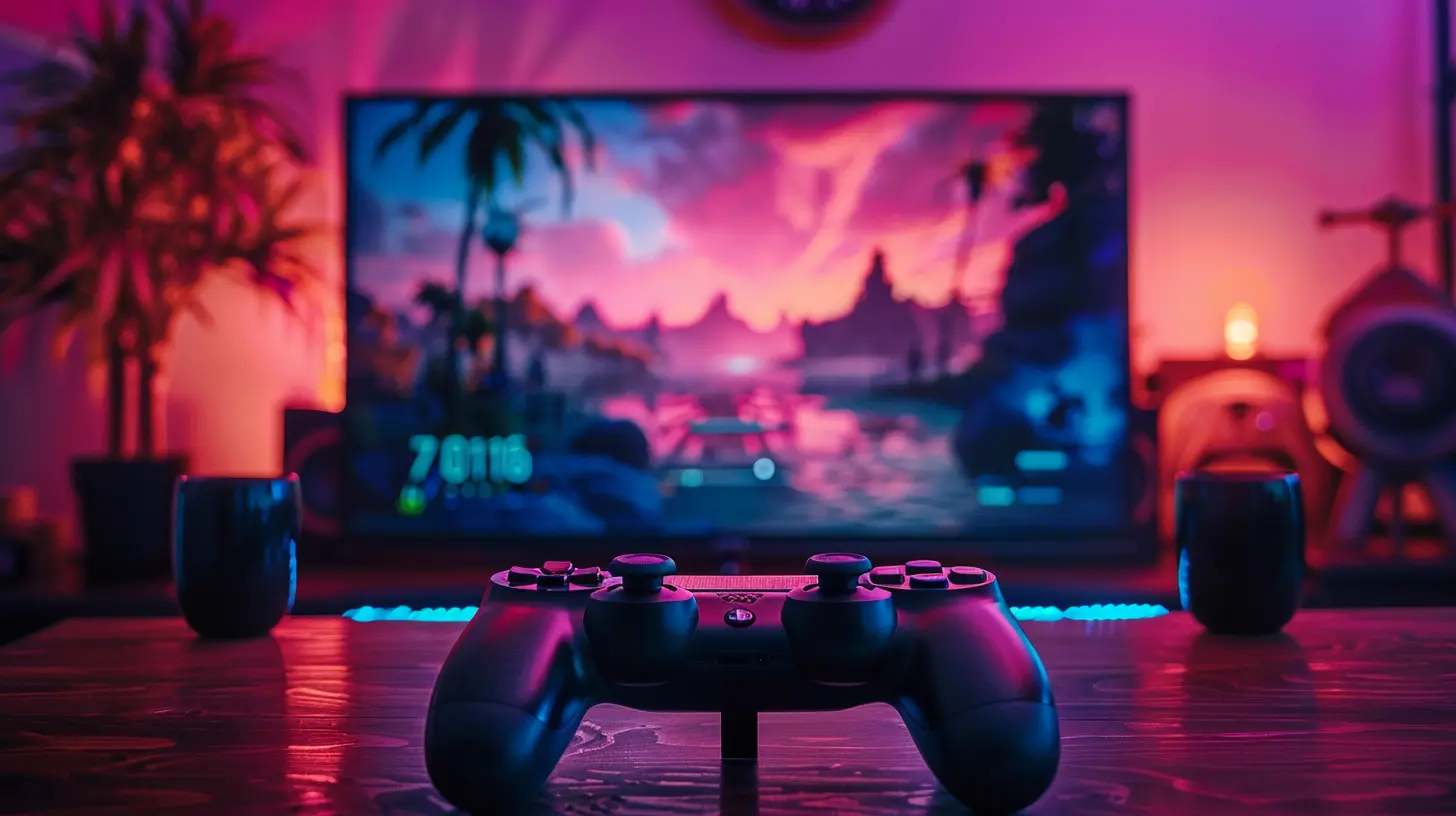How Subscriptions Are Affecting Gaming Habits
9 October 2025
Gaming has come a long way, hasn’t it? From inserting coins into arcade machines to downloading 100 GB games at home, we’ve seen a massive shift. But lately, another revolution is brewing—gaming subscriptions. If you’ve tried Xbox Game Pass, PlayStation Plus, or even Apple Arcade, you know exactly what I’m talking about.
Subscriptions are changing the way we play, buy, and even think about games. But is it all good news? Or are there hidden consequences that we haven’t fully wrapped our heads around yet?
Let’s dive deep and break down how subscriptions are affecting gaming habits—for better or worse.
The Rise of Gaming Subscriptions: What’s the Big Deal?
Imagine walking into a massive game store where you can play anything you want, anytime, without paying for each title. Sounds like a dream, right? That’s pretty much what gaming subscriptions offer.Over the past few years, platforms like:
- Xbox Game Pass
- PlayStation Plus
- EA Play
- Ubisoft+
- Apple Arcade
- Netflix Games
...have entered the scene and shaken things up.
These aren’t just “nice-to-have” options anymore. Subscriptions have become major players in how gamers consume content. They offer instant access to hundreds of titles for a flat monthly fee. It’s like Netflix for games—and gamers are loving it.
Accessibility Over Ownership: The New Norm?
Back in the day, we’d save up, buy a single game, and play the heck out of it. That game was ours. Today, the trend is shifting from ownership to access.Think about Spotify or Netflix. Most of us don’t “own” music or movies anymore—we stream. Gaming is starting to follow that same model.
But here's the million-dollar question: is that a good thing?
Let’s look at both sides of the coin.
⬆️ Pros of Game Subscriptions:
1. AffordabilityGetting dozens (sometimes hundreds) of games for $10-$15 a month? That’s a steal compared to paying $70 per game.
2. Trying Before Buying
Not sure if a game is your vibe? Just download and try it. If you don’t like it, uninstall—no money lost.
3. More Variety
Subscriptions let you explore genres you’d normally skip. Action, indie, puzzle, horror—you’re more likely to try them all.
4. Frequent Updates
New games get added regularly. It keeps things fresh and exciting.
5. Cross-Platform Perks
Some subscriptions work across PC, console, and even mobile—making it smoother to game wherever you are.
⬇️ Cons of Game Subscriptions:
1. No Real OwnershipOnce you stop paying, boom! Access gone. That digital game library you built? Disappears in a puff of subscription smoke.
2. Overwhelming Choices
Imagine a buffet with 100 dishes—you'll obsess over what to try and leave half-full. The same thing happens with games. You dip in and out without ever finishing anything.
3. FOMO & Burnout
Knowing games can be removed at any time makes you feel rushed. Gotta play it now before it’s gone! That pressure? It’s not fun.
4. Not All Games Are Included
Just because you're subscribed doesn’t mean you get every major title. There's still a good chance you’ll need to pay separately for that AAA hit.
Changing Habits: How We Play, Discover, and Value Games
Let’s get real—subscriptions are reprogramming our gaming brains. Here’s how they’re altering our habits:🎮 Binge-Gaming Culture
Back in the day, getting a new game felt special. We’d savor the experience. Now? We binge.Subscriptions are feeding that “just one more game” urge. We hop from title to title, often without finishing any. It's like speed dating but with games.
💰 We Think Differently About Value
When you pay for a single game, you’re invested. You play it thoroughly. With subscriptions, there's less emotional attachment. If a game doesn’t wow us in 10 minutes, we move on.The result? Shorter attention spans and higher expectations. Games now have to impress us—fast.
🔍 New Ways to Discover Indie Gems
One of the cooler side effects? Indie developers are getting a bigger spotlight. Platforms want variety, so they feature unique, smaller titles alongside blockbusters. More exposure means more players trying out hidden gems they’d never buy individually.
Developers in the Subscription Era: Boon or Burden?
It’s not just players who are adapting—developers are, too. Subscriptions have created new paths and problems for game makers.✅ The Upside
- Wider Reach: A small indie game launching on Game Pass? Huge audience boost instantly.- Upfront Deals: Platforms often pay developers a licensing fee to include their games. That’s guaranteed money regardless of game sales.
❌ The Downside
- Revenue Trade-offs: Instead of selling thousands of copies at full price, devs might earn less from lump-sum deals.- Creative Pressure: Games may start being made to “fit” into subscription models. Shorter playtimes, episodic formats, or more frequent updates to keep players subscribed.
So while subscriptions open doors, they also come with strings attached.
Subscription Fatigue: Too Many Options?
You’ve got Xbox Game Pass, PlayStation Plus, Nintendo Switch Online, EA Play, Ubisoft+, Apple Arcade, and now...Netflix Games?Let’s be honest—it’s starting to feel like cable TV all over again. Everyone wants their piece of the pie.
Here’s the problem: the more services there are, the more fragmented our gaming experience becomes. Want to play this exclusive title? Gotta subscribe to that service. It gets pricey, fast.
The frustration is real. Some gamers are starting to question whether it’s even worth it.
What About Game Preservation?
Here's a thought—what happens to old games on subscriptions? When a title gets pulled from the service, unless you buy it outright, it’s gone.For game historians and retro lovers, this is a nightmare. There's a genuine concern that more games will vanish in the digital ether, never to be played again.
Physical copies are becoming relics. That’s cool for minimalism, but not great for preserving gaming history.
The Future: Where Are We Headed?
Let’s not forget—subscriptions are still relatively new in gaming. We’re at the tip of the iceberg, and things could go in many different directions.Some possibilities:
- More Game Streaming (Cloud Gaming)
Services like Xbox Cloud Gaming and Nvidia GeForce Now offer play-anywhere flexibility. It’s Netflix, but with no downloads.
- Bundled Services
Like how Disney+ includes ESPN and Hulu, we might see gaming packages where you get multiple services at a discount.
- AI Recommendations
Think “Netflix-style” suggestions that predict exactly what kind of game you'll love next. Handy, right?
- Player Curation and Reviews
As libraries get larger, we’ll rely more on community reviews or even curated playlists (“Best Cozy Games This Month”).
Final Thoughts: Is It All Worth It?
Here’s the truth—gaming subscriptions aren’t perfect, but they’re powerful. They’ve completely altered how we interact with games, offering us a buffet of choices and a new level of convenience.But with that buffet comes decision fatigue, less emotional investment, and potential burnout.
It’s up to each of us to find the balance. Subscriptions can be amazing if you manage your time and expectations. Like any tool, it’s about how you use it.
If you’re a gamer who loves variety, wants to save cash, and enjoys discovering new titles—you’ll probably love gaming subscriptions.
But if you value full ownership, physical collections, and deep dives into single games, you might want to stick to buying your favorites the old-school way.
Whatever your style, one thing’s clear: subscriptions are here to stay, and they’re shaping the future of gaming as we know it.
all images in this post were generated using AI tools
Category:
Gaming SubscriptionsAuthor:

Jack McKinstry
Discussion
rate this article
1 comments
Rocket Bowers
Subscriptions are like cheat codes for gaming habits—convenient, but often too easy. Let's be real: if you’re not binge-playing, are you even gaming? Get ready for the addiction, folks!
October 16, 2025 at 2:23 PM

Jack McKinstry
Great point! Subscriptions definitely make gaming more accessible, but they can also blur the line between casual and binge play. Balancing enjoyment with moderation is key!


